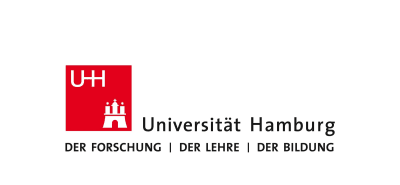The University Universität Hamburg is the largest institution for research and education in northern Germany. As one of the country’s largest universities, we offer a diverse range of degree programs and excellent research opportunities. The University boasts numerous interdisciplinary projects in a broad range of fields and an extensive partner network of leading regional, national, and international higher education and research institutions. Sustainable Science and Scholarship Universität Hamburg is committed to sustainability.
All our faculties have taken great strides towards sustainability in both research and teaching.
Excellent research
As part of the Excellence Strategy of the Federal and State Governments, Universität Hamburg has been granted clusters of excellence for 4 core research areas: Advanced Imaging of Matter (photon and nanosciences), Climate, Climatic Change, and Society (CLICCS) (climate research), Understanding Written Artefacts (manuscript research) and Quantum Universe (mathematics, particle physics, astrophysics, and cosmology).
An equally important core research area is Infection Research, in which researchers investigate the structure, dynamics, and mechanisms of infection processes to promote the development of new treatment methods and therapies.
Excellent University
Furthermore, alongside 10 universities and 1 university alliance, Universität Hamburg was named a University of Excellence and was deemed a "flagship university."
Outstanding variety: 180-degree programs
Universität Hamburg offers more than 180-degree programs within its eight faculties:
Universität Hamburg is also home to several museums and collections, such as the Herbarium Hamburgense, the Geological-Paleontological Museum, the Loki Schmidt Garden, and the Hamburg Observatory.
History
Universität Hamburg was founded in 1919 by local citizens. Important founding figures include Senator Werner von Melle and the merchant Edmund Siemers. Nobel Prize winners such as the physicists Otto Stern, Wolfgang Pauli, and Isidor Rabi taught and researched at the University. Many other distinguished scholars, such as Ernst Cassirer, Erwin Panofsky, Aby Warburg, William Stern, Agathe Lasch, Magdalene Schoch, Emil Artin, Ralf Dahrendorf, and Carl Friedrich von Weizsäcker, also worked here.

